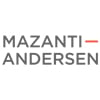-
What are the key rules/laws relevant to M&A and who are the key regulatory authorities?
Tunisia’s mergers and acquisitions (M&A) landscape operates under a robust legal and regulatory framework designed to promote transparency, fair competition, and investor protection.
At its core, the Commercial Companies Code forms the cornerstone of corporate transactions, governing company formation, restructuring (mergers, spin offs), share transfers, and corporate governance.
Depending on the company’s legal structure, other legal frameworks may also apply, such as Law No. 94-117 of November 14, 1994, on the Reorganization of the Financial Market and the General Regulation of the Stock Exchange (approved by the decision of the Minister of Finance on February 13, 1997, as amended by subsequent decisions).
Generally, tax code and labor code also apply. Tax considerations, including capital gains and corporate income tax, are governed by the Tax Code, which provides specific incentives for eligible transactions. On the labor front, employee rights during M&A processes are protected under Labor Law (Labor Code and Collective Bargaining Agreements), which mandates consultation with worker representatives and safeguards employment conditions.
Based on the specifics of the transaction other foundations can apply including from anti-trust perspective the law n° 2015-36 of September 15, 2015, relating to the reorganization of competition and prices aiming at ensuring market fairness by requiring Competition Council approval for transactions that could create dominant market positions or restrict competition.
The activities of companies engaged in the M&A process may also be subject to specific legislation that governs such transactions, such as the banking sector, which is regulated by Law No. 2016-48 of July 11, 2016, concerning banks and financial institutions.
Complementing this foundation, investment activities are facilitated by key legislation, including Investment Law No. 2016-71 (September 30th, 2016), which establishes the general investment framework; and Law No. 2019-47 (May 29th, 2019), aimed at improving the investment climate.
For international transactions, cross-border M&A deals must comply with Foreign Exchange Regulations, requiring Central Bank of Tunisia approval for foreign currency transactions in compliance with the foreign exchange regulation notably the foreign exchange and international trade code and the decree no. 77-608 of July 27, 1977, establishing the conditions for the application of the said code.
The relevant regulatory authorities vary based on the specific features of the transaction, such as the Central Bank of Tunisia, the Financial Market Council (CMF) and the Competition Council.
This comprehensive framework ensures a balanced approach to economic growth while protecting stakeholder interests, offering clear guidelines for both domestic and international investors.
-
What is the current state of the market?
Tunisia’s market is navigating a complex but promising landscape shaped by post-pandemic recovery, economic and law reforms, and evolving sectoral dynamics. While the country continues to face economic challenges, strategic advantages and government initiatives are driving renewed investor interest.
-
Which market sectors have been particularly active recently?
Several market sectors have been particularly active these recent years:
The banking sector is transforming through regional consolidation and digital banking investments from European and Gulf investors.
Renewable energy projects – particularly in solar and wind power – are attracting strong European partnership interest. For example, a new tripartite cooperation project was launched on March 24, 2025, with the signing of an agreement between Tunisia, Japan, and Norway for the construction of a 100 MW photovoltaic power plant in Mezzouna, Sidi Bouzid.
Tunisia’s traditional agribusiness strength continues to drive deals in olive oil and date exports alongside sustainable food technologies, and post-pandemic healthcare investments focus on pharmaceutical manufacturing and MedTech startups.
Tunisia’s tech sector is growing, driven by startups in different areas such as fintech, agritech, and healthtech. The country is becoming an innovation hub, with significant investments, supported by government policies and incentives encouraging entrepreneurship.
Digital infrastructure development is fueling ICT and telecom transactions, and tourism’s recovery is reviving hospitality real estate activity. Currently, renewable energy and digital transformation sectors show the most promising growth potential, benefiting from clear policy support and foreign investor confidence.
-
What do you believe will be the three most significant factors influencing M&A activity over the next 2 years?
The Tunisian M&A activity over the next two years will be heavily influenced by the regulatory reforms (including tax) that are modernizing investment conditions and business operations; the growing foreign investor interest drawn by Tunisia’s strategic market position; and the accelerated digital transformation across Tunisian businesses, creating new opportunities in technology-driven sectors.
-
What are the key means of effecting the acquisition of a publicly traded company?
The acquisition of publicly traded companies in Tunisia operates through three primary channels: First, negotiated takeovers, which require both board approval and shareholder votes, typically with a two-thirds majority for significant transactions. Second, public tender offers (OPAs) – these may be voluntary or, in cases where an acquirer crosses the 50% ownership threshold, mandatory – in all cases requiring CMF pre-approval and independent valuation. Third, block trades trigger immediate disclosure obligations upon reaching 5% ownership increments.
Beyond these main methods, alternative approaches exist: statutory mergers necessitate court sanctioning, while squeeze-outs become available at 95% ownership. Crucially, all transactions remain subject to rigorous CMF oversight along with BVMT disclosure requirements and must undergo Competition Council review when exceeding 30% market share in relevant sectors.
-
What information relating to a target company is publicly available and to what extent is a target company obliged to disclose diligence related information to a potential acquirer?
Tunisian publicly listed companies must disclose comprehensive information through the Tunis Stock Exchange (BVMT) and Financial Market Council (CMF), including audited financials, ownership structures, and material events, while private companies provide basic registration data through the National Business Registry (RNE). Documents such as general meeting minutes and financial statements are often publicly available for certain companies in the RNE platform, primarily older filings. However, new filings are not usually published immediately, as updates to the RNE database can take some time. In some cases, to access this information, a formal request must be submitted, and granting access is at the sole discretion of the RNE, which controls access to the registered company’s files.
During acquisitions, public targets must disclose material information for regulated transactions like tender offers, whereas all companies typically require NDAs before sharing sensitive operational or financial details in data rooms – though private targets often limit disclosures due to competitive concerns, requiring acquirers to supplement RNE data with tax records, social security filings (CNSS) for complete due diligence.
-
To what level of detail is due diligence customarily undertaken?
In Tunisia, M&A due diligence is conducted with rigorous attention to detail, with its scope and depth being tailored to the transaction’s value, sector specifics, and whether the target is publicly listed or privately held. For public companies, the process builds upon their mandatory disclosures to the Financial Market Council (CMF) and Tunis Stock Exchange, including audited financials (typically 3-5 years of statements), ownership structures, and material contracts.
Private company due diligence, while equally thorough, requires more extensive cooperation from the target to access critical operational data, often through structured virtual data rooms containing sensitive financial records, tax filings, employment contracts, and intellectual property documentation.
The standard due diligence framework systematically examines: (i) legal and regulatory compliance (verifying corporate governance, pending litigation, and sector-specific permits); (ii) financial health (analyzing historical performance, working capital cycles, and debt obligations); (iii) operational resilience (assessing supply chain dependencies, IT infrastructure, and key personnel); and (iv) reputational risks (evaluating stakeholder relationships and market positioning).
-
What are the key decision-making bodies within a target company and what approval rights do shareholders have?
Tunisian companies operate under a clear governance framework where ultimate authority rests with the Shareholders’ General Meeting, which holds two distinct types of assemblies: Ordinary Meetings for routine matters like the renewal of the terms of office of the executives, managing directors, administrators, or auditors, financial approvals and dividend declarations requiring a simple majority, and Extraordinary Meetings for major structural changes needing a reinforced majority.
Day-to-day leadership is provided based on the company’s legal structure: for joint-stock companies, it is managed by the Board of Directors, which is responsible for strategic decisions and executive oversight. while operational management falls to the Executive Committee. In limited liability companies, the responsibility lies with the manager, who handles both operational management and decision-making.
Shareholders enjoy fundamental rights including priority access to new share issues, access to company records, and flexible voting options, with additional protections for minority owners who can demand special meetings and contest unfair decisions.
Publicly listed companies face stricter requirements, including mandatory disclosure of significant developments, regulatory approval for acquisitions, and quarterly financial reporting, creating a balanced system that protects both majority and minority interests within Tunisia’s evolving business environment.
-
What are the duties of the directors and controlling shareholders of a target company?
Usually, directors of company owe fiduciary duties to act with care, loyalty, and within their authority, ensuring prudent decision-making, avoiding conflicts of interest, and safeguarding confidential information while complying with legal requirements. They are responsible for setting corporate strategy, approving major transactions, and maintaining financial oversight, with accountability to shareholders through transparent reporting. As for controlling shareholders, while wielding significant influence, they must act in good faith, treating minority shareholders fairly and disclosing conflicts of interest, particularly in related-party transactions. They must also respect corporate governance principles, ensuring decisions align with the company’s long-term interests. Breaches of these duties can result in legal action, fines, or personal liability, with publicly listed companies facing stricter scrutiny under CMF regulations, including mandatory disclosures and equitable treatment of minority investors.
As part of an M&A process, the directors and controlling shareholders must disclose all the necessary information relevant to the transaction and ensure that the decision-making process is carried out in compliance with the Law.
-
Do employees/other stakeholders have any specific approval, consultation or other rights?
Employees and other stakeholders are granted specific rights in mergers and acquisitions (M&A) transactions to safeguard their interests and ensure procedural fairness. First, regarding employees, employers are required to consult employee representatives (such as trade unions or works councils) on job security, working conditions, and mitigation measures. Furthermore, employment contracts are automatically transferred to the new entity without modification, and dismissals solely due to the transaction are prohibited. Redundancies must follow strict legal procedures, including valid justification, severance payments, and rehiring priority. Additionally, existing collective bargaining agreements remain enforceable unless renegotiated by mutual consent.
As for other stakeholders, creditors benefit from protection in certain situations and oppose the transaction if it threatens their claims, while suppliers and customers generally retain contractual rights unless otherwise agreed.
Moreover, certain M&A deals require regulatory approvals, such as clearance from the Competition Council for transactions affecting market competition or sector-specific authorities in regulated industries like banking or telecommunications.
Finally, minority shareholders hold approval rights for major corporate actions and may exercise tag-along rights in company sales.
-
To what degree is conditionality an accepted market feature on acquisitions?
Conditionality is a well-established and widely accepted feature in acquisition agreements, serving as a key mechanism to manage risks, ensure regulatory compliance, and balance the interests of buyers and sellers. Common conditions precedent may include regulatory approvals (such as clearance from the Competition Council or sector-specific authorities for deals in banking, telecoms, or energy), shareholder consents (e.g., EGM approvals), and due diligence requirements (e.g., satisfactory audit outcomes). Additionally, transactions may hinge on financing conditions (securing funding or debt restructuring), labor-related terms (consultation with employee representatives or no material layoffs), and third-party consents (e.g., key supplier or lender approvals). The extent of conditionality depends on deal complexity, negotiating power, and risk allocation, with enforceability grounded in the Tunisian Commercial Companies Code (CSC) and contract law.
-
What steps can an acquirer of a target company take to secure deal exclusivity?
An acquirer typically seeks to secure deal exclusivity by including an exclusivity clause in a non-binding letter of intent (LOI) presented to the seller, which prevents the target company from engaging in negotiations or providing information to third parties for a specified period. This allows the acquirer’s advisors to conduct thorough due diligence without competition, while the seller benefits from a committed buyer moving forward in good faith. The LOI, while non-binding on the overall transaction, often treats the exclusivity provision as legally enforceable, sometimes reinforced by break fees to deter the seller from breaching the arrangement. To ensure compliance, the clause must align with Tunisian contract law and the Commercial Companies Code (CSC), avoiding any conflicts with competition regulations.
-
What other deal protection and costs coverage mechanisms are most frequently used by acquirers?
Acquirers can establish comprehensive deal protections through a combination of contractual arrangements and financial safeguards. The foundation of transaction security is built on detailed representations and warranties within the share purchase agreement, covering both fundamental corporate matters and specific operational aspects. These provisions are carefully negotiated and supported by comprehensive disclosure schedules. They are further strengthened by a warranty and indemnity clause (clause de garantie d’actif et de passif), which ensures seller liability for any pre-closing liabilities discovered after completion of the transaction. Additional protective measures typically include break-up fees to compensate the acquirer for incurred expenses if the seller withdraws, as well as escrow arrangements where a portion of the purchase price is held for a specified period to cover potential post-closing claims.
-
Which forms of consideration are most commonly used?
Primarily, cash remains the most prevalent option due to its straightforward execution and immediate liquidity for sellers. However, in mergers involving public companies, stock consideration is frequently utilized as it enables tax deferral for sellers while aligning long-term interests between both parties. For transactions where valuation disagreements arise, earn-out provisions are increasingly adopted, linking a portion of payment to the target’s future performance metrics.
-
At what ownership levels by an acquirer is public disclosure required (whether acquiring a target company as a whole or a minority stake)?
Public disclosure requirements for acquisitions are triggered at specific ownership thresholds under the oversight of the Financial Market Council (CMF). For publicly listed companies, disclosure obligations arise when an acquirer reaches or crosses any of the following voting rights thresholds: 5%, 10%, 20%, 33.33%, 50%, and 66.66%, with filings required within five trading days of each trigger. Notably, exceeding 50% ownership activates a mandatory takeover bid (offre publique d’achat obligatoire) for remaining shares. While private company acquisitions face fewer disclosure requirements, notifications apply for: (i) change-of-control transactions to relevant sector regulators (e.g., Central Bank approval for financial institutions), and (ii) foreign investments requiring Tunisian Investment Authority clearance. Additionally, all transactions must comply with continuous material event disclosure rules and insider trading prohibitions, with violations subject to CMF sanctions including fines and trading suspensions. In practice, the 5% initial threshold serves as the primary market transparency mechanism, while the 50% trigger protects minority shareholders through the mandatory bid requirement.
-
At what stage of negotiation is public disclosure required or customary?
Public disclosure requirements depend on whether the target is privately held or publicly listed. For private transactions, confidentiality is typically maintained through NDAs and contractual clauses, with no mandatory public disclosure unless the deal triggers sector-specific regulatory approvals (e.g., Competition Council clearance) or merger notifications (e.g., creditor announcements under the Commercial Companies Code).
For publicly listed companies, immediate disclosure is required upon signing a binding agreement, including material terms (price, conditions, parties), as per the Financial Market Council (CMF) rules. Notably, during negotiations, temporary non-disclosure is permitted only if: (1) the information qualifies as “inside information” under Tunisian capital market law, (2) premature disclosure could jeopardize the deal, and (3) confidentiality is strictly maintained. However, once binding terms are agreed—even if conditional—the issuer must disclose promptly. Additionally, acquirers of listed shares must preemptively disclose transaction characteristics if preliminary steps could significantly impact share prices, unless deferred for legitimate confidentiality reasons under CMF oversight.
-
Is there any maximum time period for negotiations or due diligence?
While there is no maximum period that governs M&A due diligence or negotiations, market practice establishes efficient timelines typically ranging from 4 to 8 weeks for standard transactions. Three key factors significantly influence duration: (1) deal complexity – with regulated sectors like banking or telecoms often requiring extended reviews for compliance verification; (2) the target’s preparedness – including the availability and organization of financial/legal records which can accelerate or delay the process; and (3) acquirer requirements – where comprehensive legal, financial and tax due diligence demands more time than high-level reviews. Competitive processes may compress timelines, while complex cross-border deals frequently exceed 8 weeks, with all timelines being contractually defined through NDAs or Letters of Intent.
-
Is there any maximum time period between announcement of a transaction and completion of a transaction?
The duration between announcing and completing an M&A transaction varies significantly based on the deal’s specific circumstances, though no legal maximum timeframe exists. The process generally moves faster for straightforward private acquisitions, while complex transactions—particularly those involving regulated industries or public companies—typically require substantially more time to finalize. Parties typically establish a contractual long-stop date (usually ranging from several months to a year) to provide certainty and prevent indefinite delays. Regulatory approvals often represent the most time-consuming phase, with different authorities needing to review the transaction depending on the sector involved. These external processes may ultimately determine whether the deal closes before reaching the agreed long-stop date. Publicly listed companies must keep markets informed about progress, adding transparency requirements that don’t apply to private deals. The overall timeline ultimately depends on how quickly various conditions can be satisfied—from regulatory clearances and shareholder approvals to financing arrangements—with market practice showing completion periods ranging from several months to over a year in particularly complex cases.
-
Are there any circumstances where a minimum price may be set for the shares in a target company?
While no statutory minimum share price exists for private M&A transactions, specific regulatory and contractual mechanisms can effectively establish price floors in certain circumstances. For public companies, mandatory takeover bids (OPA) triggered at 50%+ ownership require the Financial Market Council (CMF) to validate the offer price based on: (i) independent fair market valuation, and (ii) a premium over the historical trading average (typically 6-12 months). Additionally, minority shareholder protections may impose valuation benchmarks through judicial or independent expert reviews in contested transactions. Notably, shareholder agreements often incorporate tag-along/drag-along clauses that tether minority share prices to majority stake valuations, while sector regulators (e.g., Central Bank for financial institutions) may intervene to prevent significant undervaluation of strategic assets. In practice, private deals maintain pricing flexibility unless constrained by pre-emptive rights, earn-out structures, or competitive bidding dynamics – demonstrating how Tunisia’s framework balances contractual freedom with targeted investor protections through conditional pricing mechanisms.
-
Is it possible for target companies to provide financial assistance?
Target companies are prohibited from providing financial assistance to facilitate the acquisition of their own shares, whether directly or indirectly. This prohibition covers loans, guarantees, security arrangements, or any other support that could help finance the purchase of the company’s shares. There are limited exceptions such as standard banking operations conducted in the ordinary course of business and duly authorized employee stock ownership programs that comply with all legal requirements.
-
Which governing law is customarily used on acquisitions?
Acquisition agreements for domestic transactions are usually governed by Tunisian law, while cross-border deals typically adopt a hybrid approach where the share purchase agreement may use foreign law for general provisions, but Tunisian law always applies to share transfers, corporate approvals, and regulatory compliance matters and other legal matters regarded as part of public order.
-
What public-facing documentation must a buyer produce in connection with the acquisition of a listed company?
When acquiring a listed company, buyers must produce and disclose several key documents to comply with Financial Market Council (CMF) and Tunis Stock Exchange regulations. The process begins with a mandatory public announcement disclosing basic transaction details, followed by a comprehensive offer document (for tender offers) that includes the purchase price, financing arrangements, post-acquisition plans, and acceptance procedures – all subject to CMF approval. Throughout the transaction, buyers must file updates for material developments, issue press releases at major milestones, and provide shareholder circulars when votes are required. For mandatory takeover bids, additional disclosures like fairness opinions become necessary. Post-closing, buyers must submit completion notices and updated shareholding information.
-
What formalities are required in order to document a transfer of shares, including any local transfer taxes or duties?
For unlisted companies, the process involves signing and notarizing a share transfer agreement, obtaining required corporate approvals, updating the shareholder register, and issuing new share certificates and update the National Business Register the company. For listed companies, additional requirements apply, both buyer and seller must place their orders through a licensed broker, who registers the transaction with the Tunis Stock Exchange (BVMT) and collects applicable exchange fees and brokerage commissions.
All transfers are subject to registration duties and stamp taxes payable within strict deadlines, with potential capital gains tax for sellers. Cross-border transactions additionally require Central Bank approval for foreign exchange compliance. Given these requirements, engaging specialized legal and financial advisors is strongly recommended to ensure full compliance with Tunisia’s Commercial Companies Code and stock market regulations.
-
Are hostile acquisitions a common feature?
Hostile takeovers are uncommon in Tunisia’s M&A market. The regulatory framework requires mandatory takeover bids for acquisitions exceeding 50% ownership, giving the Financial Market Council and target company boards significant control. Most Tunisian businesses feature concentrated ownership structures dominated by founding families or institutional investors, making unsolicited approaches ineffective.
-
What protections do directors of a target company have against a hostile approach?
Directors have protections against hostile takeovers, though such attempts are exceptionally rare. Key safeguards include mandatory takeover bid requirements supervised by the Financial Market Council, which trigger when an acquirer reaches fifty percent ownership, along with shareholder approval requirements for major transactions. Directors may implement defensive measures like seeking alternative buyers or restructuring assets, provided such actions comply with their fiduciary duties to shareholders. The concentrated ownership of most Tunisian companies, typically controlled by founding families or institutional investors, provides additional protection since unsolicited bids require support from these key shareholders.
-
Are there circumstances where a buyer may have to make a mandatory or compulsory offer for a target company?
Under Tunisian capital market regulations, a mandatory public takeover bid (OPA Obligatoire) is automatically triggered when an acquirer obtains majority control of a listed company. The Financial Market Council (CMF) strictly enforces this requirement when crossing the fifty percent voting rights threshold, when increasing an existing majority stake beyond two-thirds of share capital, or when gaining indirect control through acquisition of a parent entity. The offer price must reflect the stock’s weighted average market price over the preceding six months, subject to CMF review for fairness. Only court-supervised restructurings or liquidation proceedings qualify for exemptions. This framework, rigorously applied by the CMF, ensures minority shareholders receive equitable treatment during control transitions, with violations risking transaction annulment, regulatory sanctions, and potential civil claims.
-
If an acquirer does not obtain full control of a target company, what rights do minority shareholders enjoy?
Minority shareholders benefit from legal protections that preserve their fundamental rights unless expressly limited by corporate bylaws or specific agreements. They maintain full participation in shareholder meetings, including the ability to influence major strategic decisions that require enhanced approval thresholds. Shareholders reaching a qualifying ownership percentage gain additional safeguards—such as the right to convene special meetings, access company records, and seek judicial review of potentially prejudicial actions. The framework further guarantees protection against dilution through preemptive rights and ensures equitable treatment during ownership transitions via tag-along mechanisms. In cases of near-total acquisition, mandatory buyout provisions come into effect to ensure fair treatment.
-
Is a mechanism available to compulsorily acquire minority stakes?
Compulsory acquisition of minority stakes is permitted through a mandatory buyout mechanism triggered upon reaching a specified ownership threshold. This regulated process, requires the majority shareholder to purchase remaining minority shares at a fair price determined by independent valuation. The Financial Market Council (CMF) oversees the procedure for public companies, while commercial courts supervise private company transactions. Minority shareholders benefit from protective measures including the right to contest the valuation in court. This framework ensures an equitable balance between corporate restructuring needs and minority investor rights, providing legal certainty for both parties in ownership consolidation scenarios.
Tunisia: Mergers & Acquisitions
This country-specific Q&A provides an overview of Mergers & Acquisitions laws and regulations applicable in Tunisia.
-
What are the key rules/laws relevant to M&A and who are the key regulatory authorities?
-
What is the current state of the market?
-
Which market sectors have been particularly active recently?
-
What do you believe will be the three most significant factors influencing M&A activity over the next 2 years?
-
What are the key means of effecting the acquisition of a publicly traded company?
-
What information relating to a target company is publicly available and to what extent is a target company obliged to disclose diligence related information to a potential acquirer?
-
To what level of detail is due diligence customarily undertaken?
-
What are the key decision-making bodies within a target company and what approval rights do shareholders have?
-
What are the duties of the directors and controlling shareholders of a target company?
-
Do employees/other stakeholders have any specific approval, consultation or other rights?
-
To what degree is conditionality an accepted market feature on acquisitions?
-
What steps can an acquirer of a target company take to secure deal exclusivity?
-
What other deal protection and costs coverage mechanisms are most frequently used by acquirers?
-
Which forms of consideration are most commonly used?
-
At what ownership levels by an acquirer is public disclosure required (whether acquiring a target company as a whole or a minority stake)?
-
At what stage of negotiation is public disclosure required or customary?
-
Is there any maximum time period for negotiations or due diligence?
-
Is there any maximum time period between announcement of a transaction and completion of a transaction?
-
Are there any circumstances where a minimum price may be set for the shares in a target company?
-
Is it possible for target companies to provide financial assistance?
-
Which governing law is customarily used on acquisitions?
-
What public-facing documentation must a buyer produce in connection with the acquisition of a listed company?
-
What formalities are required in order to document a transfer of shares, including any local transfer taxes or duties?
-
Are hostile acquisitions a common feature?
-
What protections do directors of a target company have against a hostile approach?
-
Are there circumstances where a buyer may have to make a mandatory or compulsory offer for a target company?
-
If an acquirer does not obtain full control of a target company, what rights do minority shareholders enjoy?
-
Is a mechanism available to compulsorily acquire minority stakes?





























